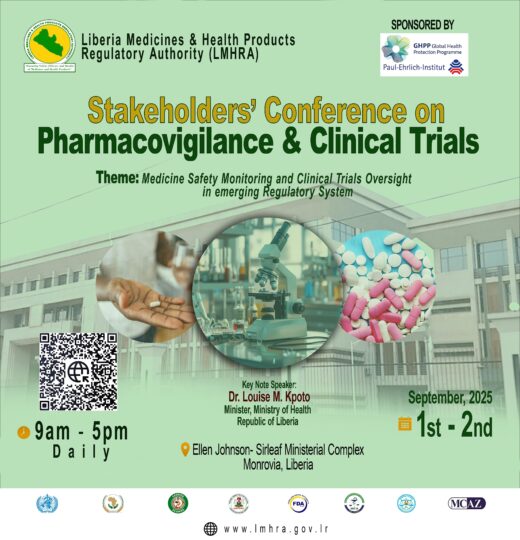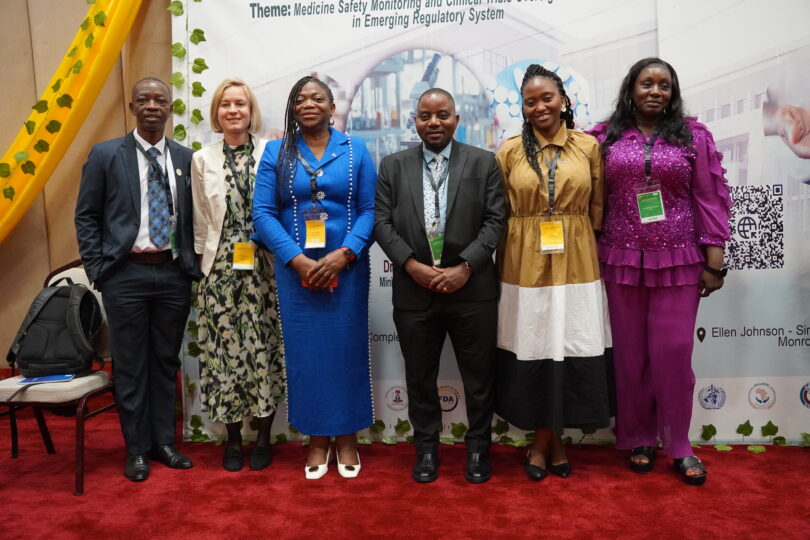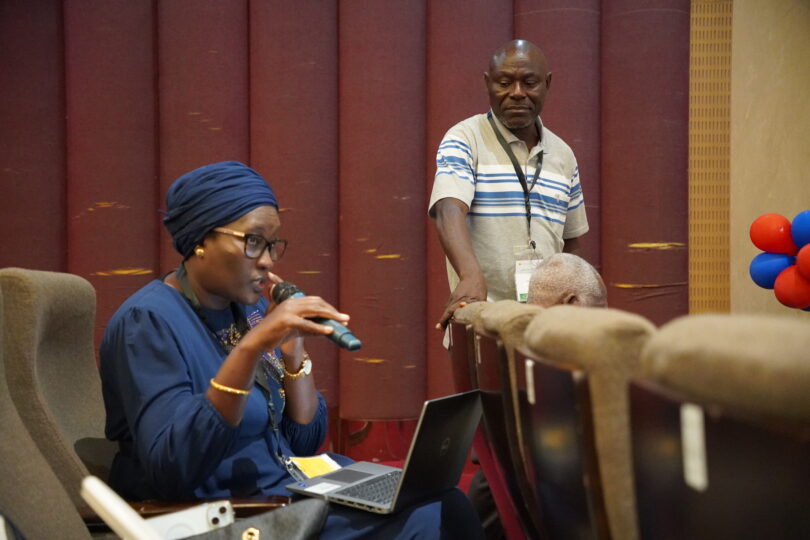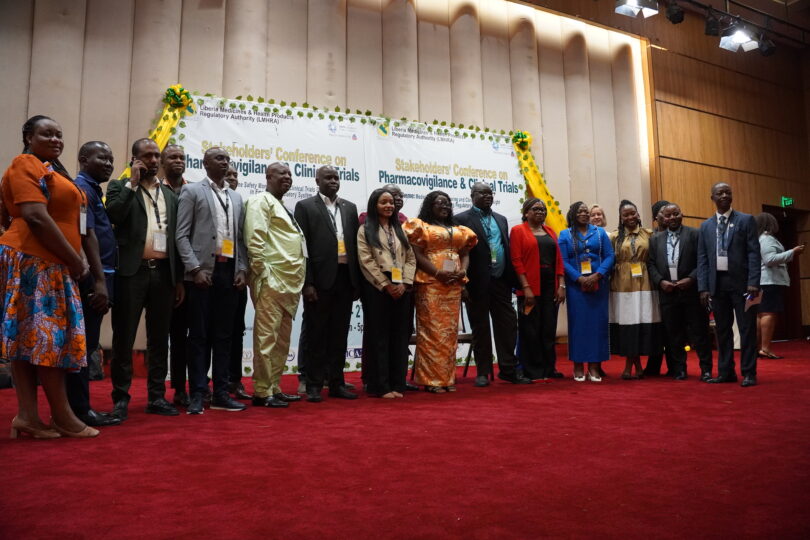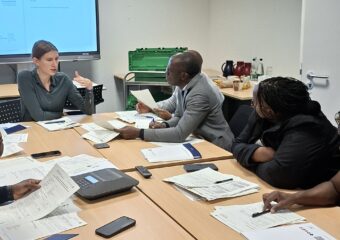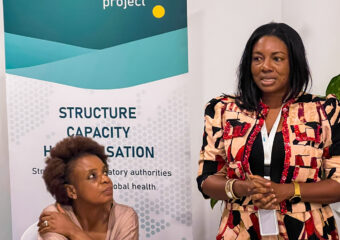Liberia’s Authority Strengthens its Capacaties in the Field of Drug Safety
Liberias first international stakeholders’ conference on regulation followed by the initial good pharmacovigilance practice inspection, marking a milestone in strengthening regulatory systems for safe medicines and vaccines in the country.
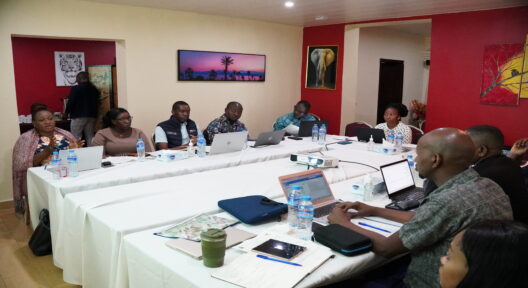
Liberia has approved its first pharmacovigilance regulation. It was presented alongside the updated regulation on clinical trial monitoring to more than 150 stakeholders. The Liberia Medicines and Health Products Regulatory Authority (LMHRA) developed these and related guidelines supported by the VaccTrain 2.0 team at the Paul-Ehrlich-Institut (PEI). Following the subsequent inspection of a pharmaceutical distributor, the authority implemented a key measure to enhance drug safety for the first time.
In early September 2025, the stakeholders’ conference and an initial good pharmacovigilance practice (GVP) inspection took place in Monrovia, Liberia. Liberia invited representatives from various African regional authorities and organisations. Among them were the West African Health Organisation (WAHO), the African Vaccine Regulatory Forum (AVAREF), the Africa Centres for Disease Control and Prevention (Africa CDC), and the World Health Organization (WHO). The event reaffirmed Liberia’s commitment to fostering greater collaboration to enhance drug safety. ‘Pharmacovigilance activities require cross-border cooperation and effort,’ says Dr Juwe D. Kercula, ‘because the regulatory authorities in Africa are essentially confronted with the same medicines in their countries.’ Dr Kercula, an employee of the LMHRA’s Clinical Trials & Pharmacovigilance Department, has been our main contact person in the VaccTrain project since its inception in 2016. He emphasises that the population would benefit from a close-knit network and rapid information transfer.
A stable regulatory framework accelerates access to high-quality, safe medicines and vaccines
The newly published regulatory documents clearly define the LMHRA’s remit for pharmacovigilance, as well as the approval and monitoring of clinical trials. The accompanying guidelines, standard operating procedures, and forms provide LMHRA staff with the specific procedures they need to follow. These regulatory documents comply with international standards. ‘The LMHRA now has a solid foundation for overcoming future challenges,’ says Dr Olga Rassokhina. She is Deputy Head of the Competence Centre for International Relations, WHO at the (PEI) and Deputy Head of the VaccTrain 2.0 project. The authority is therefore on track to qualify for WHO maturity level 3, which certifies the regulatory system as reliable, stable, and efficient. Dr Rassokhina also emphasises that this will give Liberia faster access to high-quality, safe medicines and vaccines. Additionally, it will send an important signal to vaccine and drug manufacturers.
Facilitating implementation by networking with national and international stakeholders
The stakeholders’ conference was attended by representatives of the Liberian Ministry of Health and relevant national stakeholders from the health sector. This gave those affected by the regulations the opportunity to ask questions about their implementation and to overcome any potential obstacles. Public discussion of the new guidelines is essential to ensure that target groups are aware of them, accept them, and ready to apply them. The LMHRA also sought to ensure transparency and build external trust. To this end, in addition to the above-mentioned regional authorities and organisations, the invitation extended to representatives from the medicines authorities of The Gambia, Ghana, Sierra Leone, Rwanda, and Zimbabwe. All of these are partner authorities in the VaccTrain 2.0 projects.
Article in the media about the stakeholders´ conference:
The stakeholders’ conference on pharmacovigilance and regulation also received attention from the Liberian public:
Liberia Holds First-Ever Stakeholders Conference on Pharmacovigilance and Clinical Trials; Front Page Africa Online, 2 September 2025

